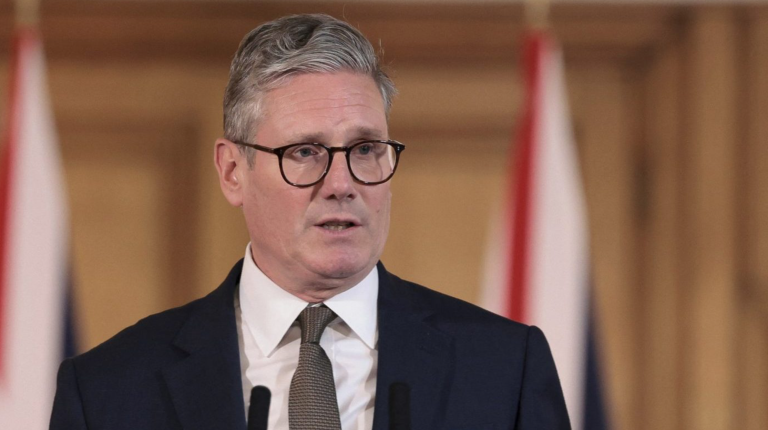
Tariffs are taxes that are imposed on imported goods. They have long been a tool for governments to regulate trade, protect domestic industries, and generate revenue. In Nigeria, a country heavily reliant on imports for essential goods, tariffs play a significant role in shaping economic policies, consumer prices, and industrial growth. However, their effects are complex, influencing everything from inflation and employment to foreign investment and smuggling.
In this analysis, we will explore how tariffs affect Nigeria’s economy, examining:
- The Structure of Nigeria’s Tariff System
- Protectionism vs. Free Trade: The Debate
- Impact on Local Industries and Manufacturing
- Consumer Prices and Inflation
- Government Revenue and Fiscal Policy
- Smuggling and Border Trade Dynamics
- Foreign Direct Investment (FDI) and Trade Relations
- Comparative Analysis: Nigeria vs. Other African Economies
- Policy Recommendations for Balanced Tariff Reforms
1. The Structure of Nigeria’s Tariff System

Nigeria’s tariff regime is governed by the Common External Tariff (CET) under the Economic Community of West African States (ECOWAS) and the African Continental Free Trade Area (AfCFTA). The Nigerian Customs Service (NCS) enforces these tariffs, which vary based on:
- Essential goods (0-5% tariff): Medicines, agricultural inputs
- Intermediate goods (5-10% tariff): Raw materials for industries
- Finished goods (20-35% tariff): Electronics, vehicles, luxury items
Additionally, Nigeria imposes special levies on certain imports, such as the 35% auto tariff to encourage local car manufacturing.
Key Insight: While tariffs are meant to protect local industries, high rates on critical imports (like machinery) can stifle production, creating a paradox where protectionism hurts the very sectors it aims to help.
2. Protectionism vs. Free Trade: The Nigerian Debate
Nigeria has historically leaned toward protectionist policies, particularly under the Buhari administration (2015-2023), which imposed import bans on items like rice and cement.
Arguments for Protectionism:
- Boosts local production (e.g., Nigeria’s rice production grew from 4.5M MT in 2015 to 8M MT in 2023 due to rice import restrictions).
- Reduces forex pressure by discouraging unnecessary imports.
Arguments Against Protectionism:
- Increases smuggling (over ₦1.3 trillion worth of rice was smuggled in 2022 alone).
- Raises consumer prices (local rice remains 30-50% more expensive than imported Thai rice).
Case Study: The automobile tariff (35%) was meant to boost local assembly plants, but Nigeria still imports over 70% of its vehicles due to weak local capacity.
3. Impact on Local Industries and Manufacturing
Tariffs can either stimulate or stifle Nigeria’s industrial sector:
Positive Effects:
- Dangote Cement benefited from import restrictions, dominating the market.
- Innoson Vehicles expanded due to auto tariffs.
Negative Effects:
- High input costs: Manufacturers relying on imported machinery face higher expenses.
- Electricity-dependent industries (like steel) struggle due to high diesel costs, worsened by tariffs on generators.

Expert View: Dr. Akinwumi Adesina (AfDB President) argues that “tariffs alone cannot industrialize Nigeria—infrastructure and power stability are bigger barriers.”
4. Consumer Prices and Inflation
Nigeria’s inflation rate (24.48% as of April 2024) is partly driven by tariffs on essential goods.
- Food prices surged after the 2020 border closure and rice tariffs.
- Electronics and vehicles became luxury items due to high import taxes.
Data Point: A 2023 World Bank study found that Nigerians pay 40% more for staple foods than neighboring Benin due to tariffs and smuggling costs.
5. Government Revenue and Fiscal Policy
Tariffs contribute ₦1.5 trillion annually (about 10% of non-oil revenue) to Nigeria’s budget. However, overdependence on tariff revenue is risky because:
- Global trade fluctuations affect earnings.
- Smuggling reduces collections (Nigeria loses ₦500 billion yearly to illegal trade).
Recommendation: Broaden the tax base via VAT and digital taxation instead of relying on volatile tariffs.
6. Smuggling and Border Trade Dynamics
High tariffs have made Nigeria a smuggling hub:
- Cotonou (Benin) ports thrive on re-exporting banned goods to Nigeria.
- Customs corruption exacerbates leakages (over ₦2 trillion lost in 5 years).
Solution: ECOWAS joint border patrols and tech-driven customs checks (e.g., e-Customs) could curb smuggling.
7. FDI and Trade Relations
Investors fear policy inconsistency in Nigeria’s tariff regime. Examples:
- Shoprite exited Nigeria partly due to forex and import restrictions.
- AfCFTA opportunities are missed because Nigeria hesitates to lower tariffs regionally.
Opportunity: Nigeria should leverage AfCFTA for export-led growth instead of excessive import controls.
8. Comparative Analysis: Nigeria vs. South Africa & Kenya
| Factor | Nigeria | South Africa | Kenya |
|---|---|---|---|
| Avg. Tariff Rate | 12% | 5% | 8% |
| Manufacturing Growth | 2.1% | 4.3% | 6.2% |
| Smuggling Rate | High | Moderate | Low |
Lesson: Balanced tariffs + infrastructure investment = better industrial growth.
9. Policy Recommendations
- Adopt smart tariffs (low on raw materials, high on luxury goods).
- Invest in power and transport to make local industries competitive.
- Strengthen AfCFTA participation for regional trade benefits.
- Combat smuggling via tech and regional cooperation.
Conclusion
Tariffs are a double-edged sword for Nigeria. While they protect some industries, excessive protectionism raises costs, fuels smuggling, and deters investment. A balanced approach—combining moderate tariffs with infrastructure development—is key to sustainable economic growth.
- The Death of Fish Magnet and Why Kidnapping Continues to Thrive in Nigeria - August 2, 2025
- The Fall of Intelligence - July 10, 2025
- UK to Tighten Visa Rules for Nigerians and Pakistanis Due to Overstaying Concerns - May 7, 2025
Discover more from TruthPost
Subscribe to get the latest posts sent to your email.









It’s interesting how the article highlights the tension between protecting local industries and keeping prices affordable for consumers. I wonder how Nigeria might strike that balance without deepening inflation.
You nailed the complexity of Nigeria’s tariff landscape. One area that could use more exploration is how informal border trade might surge if consumer prices spike—especially in regions already dependent on cross-border commerce.